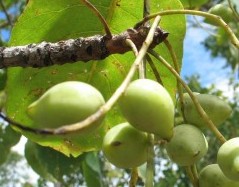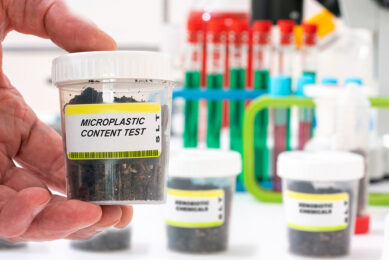Australian plums increase shelf life of petfoods

The Queensland Alliance for Agriculture and Food Innovation (QAAFI) and Queensland Government scientists have discovered promising new anti-microbial properties in a combination of natural-plant ingredients, including two common native Australian plums.
A research team led by QAAFI food scientist Dr Yasmina Sultanbawa has discovered that when small amounts of the kakadu and Queensland Davidson plum are combined with organic acids they display promising new anti-microbial properties.
Dr Sultanbawa’s research team has been looking at how native plants might be used to extend the shelf-life of processed kangaroo meat in pet food, which would help to reduce the industry’s reliance on preservatives such as sulphides.
“The pet food industry has traditionally used sulphites to extend the shelf-life of meat products, however extended high exposure to sulphites can lead to thiamine deficiencies in small animals including cats and dogs,” Dr Sultanbawa said.
“Consumers are trending towards fresh, natural produce across-the-board – and that includes food choices for their beloved pets.
“The kakadu and Queensland Davidson plums both have tremendous potential as anti-microbial agents and we have only just begun to explore the protective properties of these native fruits.
“Although this is new work, our preliminary studies suggest it might be possible to improve the shelf-life of kangaroo meat by adding native plum anti-microbial agents and using existing processing such as vacuum packaging for best results.”
Department of Employment, Economic Development and Innovation (DEEDI) scientist Andrew Cusack said that this research could be applied to other minced meat products such as sausages where sulphite is used as a preservative.
“Additionally plant extracts have other benefits such as antioxidant properties which could contribute to better health,” Cusack said.
Dr Yasmina Sultanbawa’s research “Shelf-life extension of kangaroo meat using natural anti-microbials” is a collaboration between scientists from QAAFI and DEEDI’s Innovative Food Solutions and Technologies.












